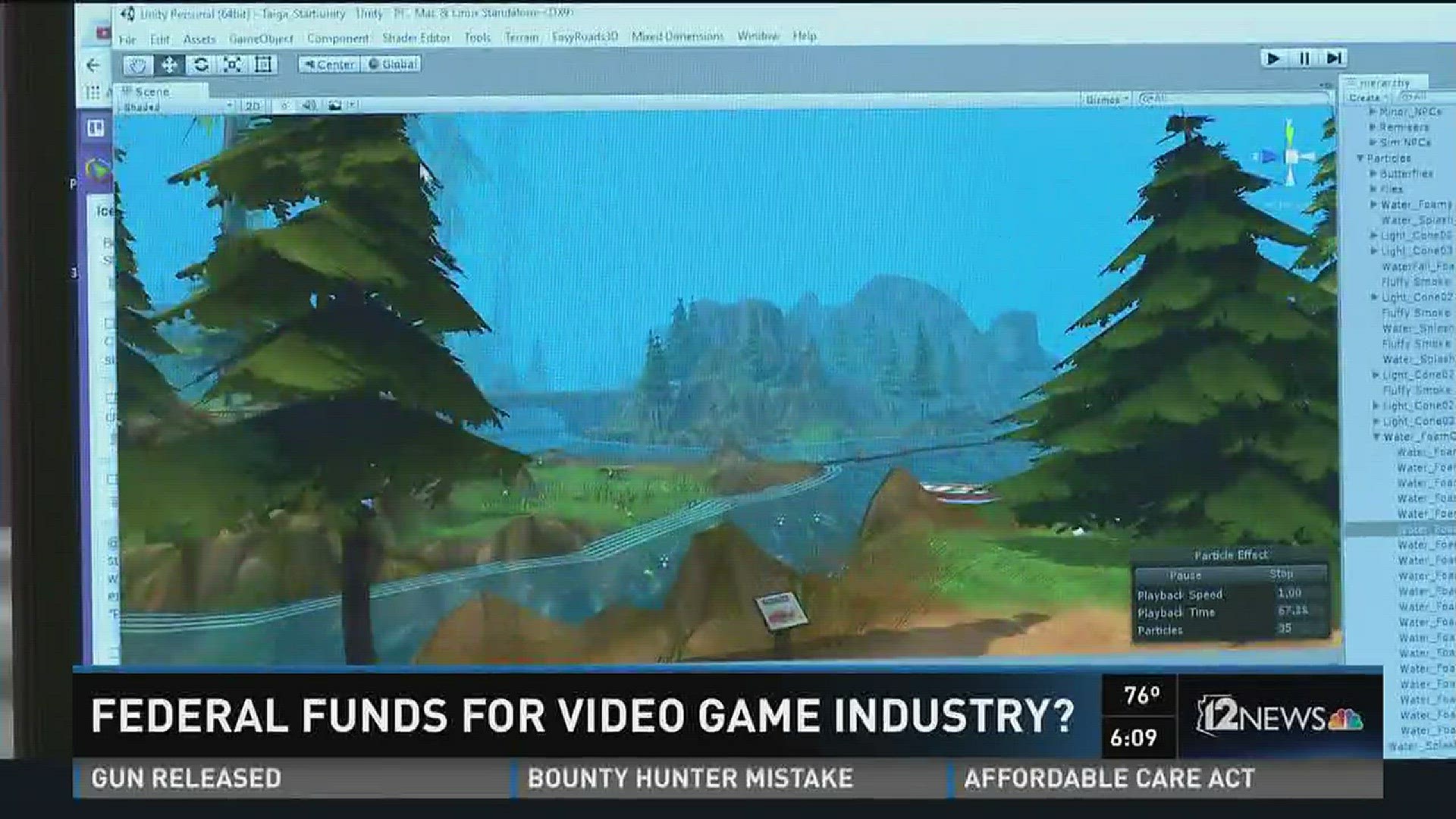An ASU professor is pushing back against criticism by Arizona Sen. Jeff Flake of government-funded video game development.
“Whether or not you like them as a platform for learning, to condemn these programs for which there are hundreds of emerging game designers is to really lock out your state of an emerging industry,” said James Gee, a Regent Professor at ASU’s Teacher’s College of Education.
Gee trains doctoral students on how to improve video game technology.
Flake's annual "Wastebook" report targeted two federal spending projects aimed at gaming design and research. In all, Flake cited more than $5 billion in what he called “questionable” public expenditures in areas like the arts, scientific research and the military.
On the subject of video gaming, Flake criticized funding for the Massachusetts Digital Games Institute (MassDigGI) at Becker College, which has been supported with nearly $2.5 million from the U.S. Department of Commerce since 2011. The federal investment is touted as a way to support entrepreneurship and technology commercialization in a rapidly growing industry.
But Flake questioned the relevance of games created by students at the institute – such as “Cat Tsunami” and “Hibachi Hero” -- that to many observers, may seem trivial.
“While coming up with new concepts may literally be all fun and games, doing so should not be paid for by gaming the taxpayers,” Flake wrote.
But Gee said development of such technology leads to other breakthroughs in industries like health care and education.
“We can’t tell that just because you think a game is trivial that the technology and the ideas that went into it couldn’t be a big payoff for something else,” Gee said.
Gee said he hopes more policymakers begin seeing gaming technology as essential to organizations as books were in the past. The video game industry is growing 3-5% annually, according to economists.
“This is a new platform for learning, thinking and also collaboration,” Gee said.
He points to a nationwide video game program he helped develop known as I-Civics. The interactive U.S. civics learning platform, championed by former Supreme Court Justice Sandra Day O’Connor, is now implemented by half of social studies teachers in the country, Gee said.
“Just like books, digital technologies open up new ways to collaborate and think, how to build new industries, how to build new ideas,” Gee said.
Backlash against Flake’s criticism also came from members of the Higher Education Video Games Alliance (HEVGA). They sent a flurry of tweets to Flake this month, extolling the virtues of the industry.
“Healthcare is turning to game-based learning to train MD’s & RN’s in private sector and at VA and Military,” states one tweet. Another tweet: “Video game programs at @beckercollege & 400+ U.S. schools aren’t wasteful – they’re training a high-skilled workforce.”
According to HEVGA, there are now more than 40 video game companies in Arizona and 23 colleges that offer video game programs.
In response to the backlash, Flake sent the following statement to 12 News on Monday:
"With the national debt hurtling towards $30 trillion, Congress needs to find the courage to curb spending and it needs to find it fast. I don't believe the federal government should be borrowing money from China support a vibrant and growing gaming industry that already generates more than $15 billion in annual revenues."
In his “Wastebook” report, Flake also described a $36,700 grant from the EPA supporting virtual video game experiences for children that focused on environmental conservation. The game is based on the popular "Minecraft" virtual world platform and allows students to design landscapes for future conservation service projects.
Flake suggested EPA federal dollars could be put to more practical use, like replacing water pipes in communities contaminated by lead poisoning. Flake called the spending an example of “literally playing games with taxpayer money.”

